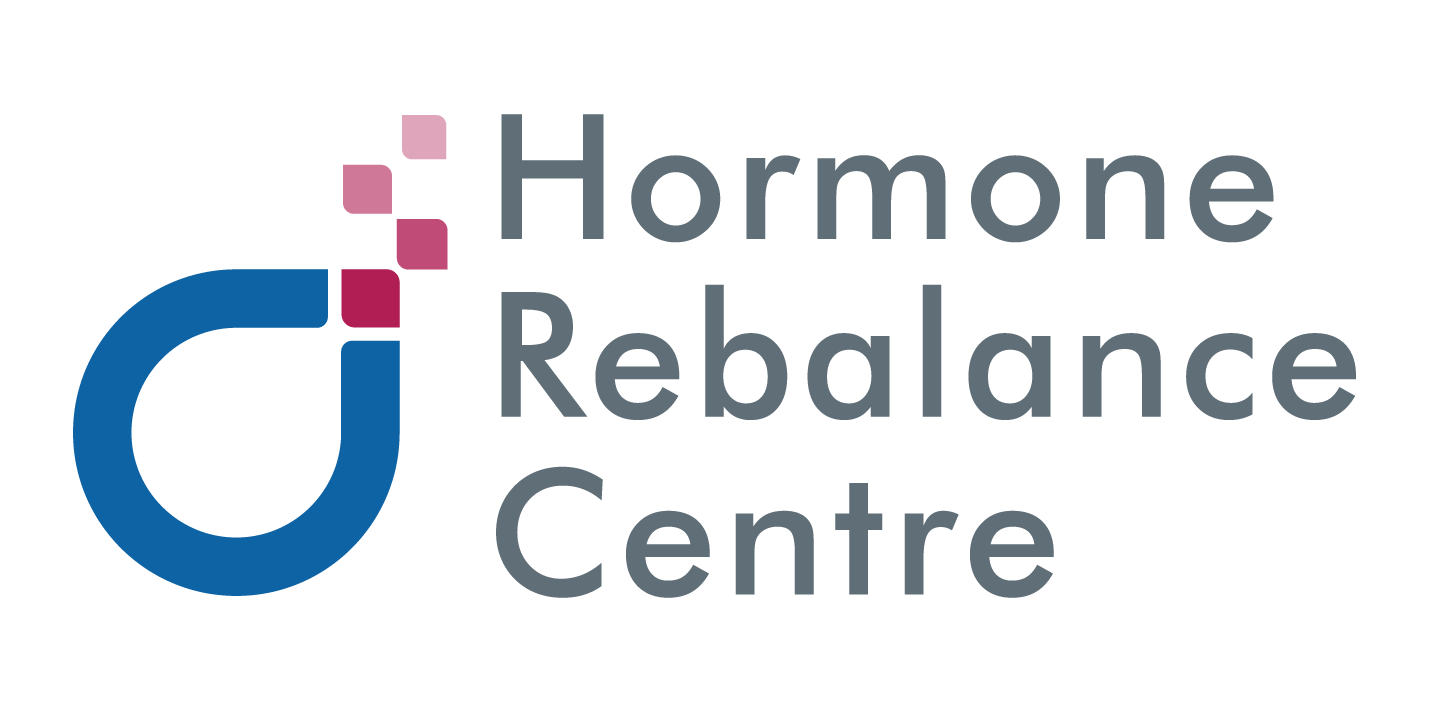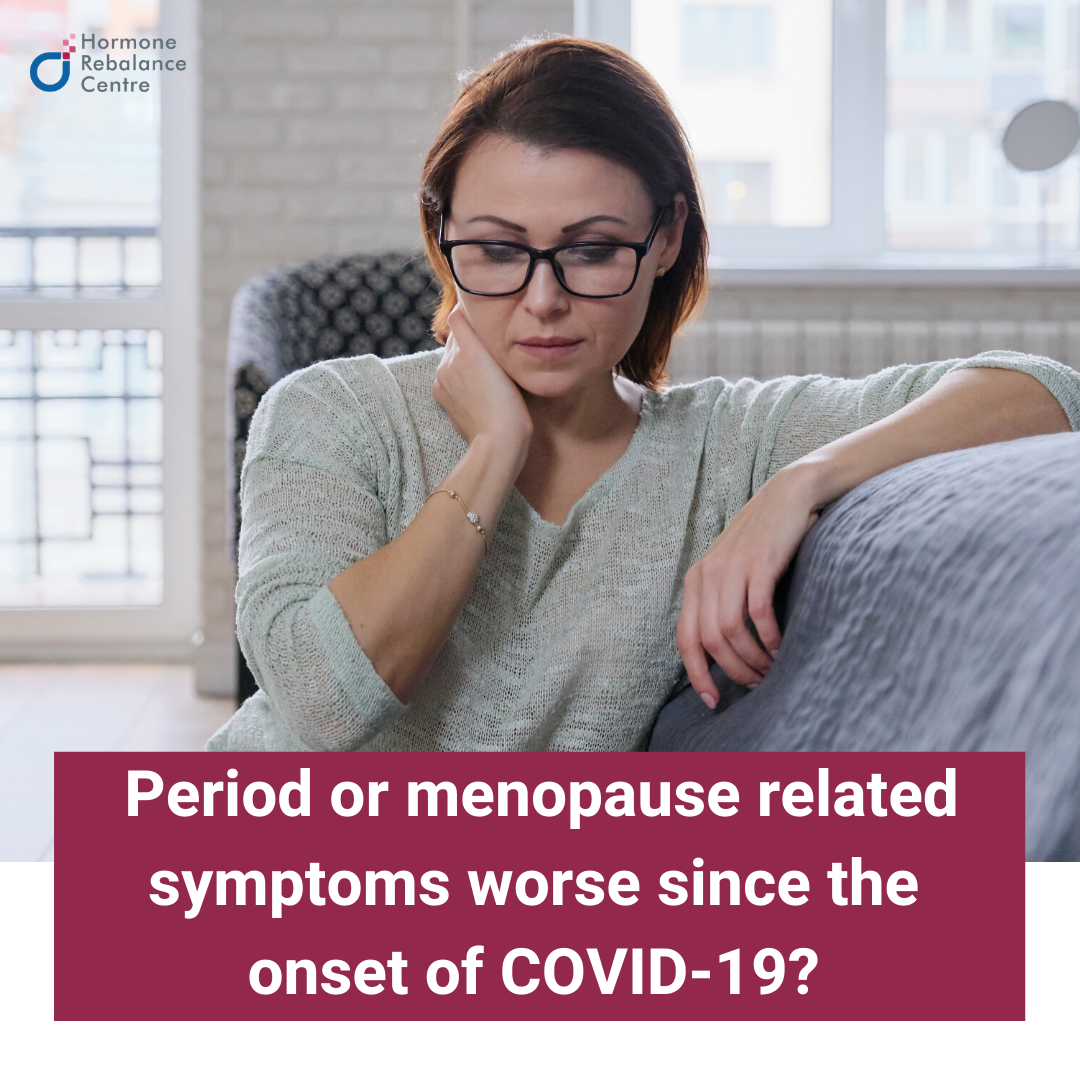At this point in time, we’ve been dealing with COVID-19 quarantine for over two months. There is no doubt that this is unlike something we’ve ever seen or experienced before.
Something we have noticed with women in the last one to two months, is an increase or worsening in their period or menopause related symptoms. These include:
- heavier or more painful periods
- irregular periods
- more breast tenderness
- more moodiness, anxiety, depression
- worse sleep
- lower sex drive
- more hot flashes or night sweats
- increased weight gain
These symptoms are commonly related to an imbalance in your sex hormones, estrogen and progesterone, but why would your sex hormones be impacted right now?
One of the MOST common reasons why your hormonal symptoms can get worse all of a sudden, despite perhaps getting to a place where they were under control or maybe they were never that bothersome to begin with and now they are, is STRESS.
There is no doubt that this is related to the current world events and you probably could guess it yourself. However, it’s also important to remember this for the future as well to better understand your past symptoms as one thing we find women are often surprised by is how stress impacts what may seem to be other unrelated parts of their life.
A study in the Journal of Women’s Health has shown that women who self report higher stress levels in the two weeks preceding their period are 2-3x more likely to experience physical PMS symptoms such as body aches, bloating, cramps, headaches and low back pain as well mental and emotional symptoms such as depression, sadness and crying spells compared to women who did not report feeling stressed early in their cycles.
Through various mechanisms, your stress hormone, cortisol, is a very common offender to your hormonal balance. There is nothing that cortisol can’t make worse!
There is a lot that we still don’t fully understand with regards to the exact mechanisms of action of how cortisol affects your sex hormone production, but from a physiological standpoint, when you are under stress, your body’s main priority is to favour survival over reproduction (which is the biological purpose of your period and the hormonal shifts that relate to it).
Therefore, through complex pathways, the body will favour diverting energy and resources to helping you handle the stress and will deprioritize procreation and hence negatively impact your estrogen and progesterone balance, which can lead to many of these symptoms listed above.
With that being said, the circumstance of COVID-19 that could further contribute to hormonal imbalance and intern worsen your period or menopause related symptoms, include:
Other Factors to Consider:
- Increase alcohol consumption – there is no doubt that some women find themselves consuming more alcohol these days. It may seem benign and still small quantities (i.e. even a glass or two of wine for dinner) – but the frequency can have an impact on your liver and hence how your body metabolizes your hormones, especially your estrogen.
- Increased sugar consumption -sugar will have a direct negative impact on your stress hormone, your cortisol. Frequent snacking, late night munchies, spiked and drops with blood sugar levels, all add to the stress in your system and increase inflammation.
- Lack of exercise– there is no doubt that being unable to leave the house, combined with the closure of gyms and exercise studiods, contributes to a more sedentary lifestyle. Exercise has much research to support its benefits in reducing period and menopause related concerns and hence if your typical routine has changed, this can be a direct contributor to worsening of any symptoms you may experience.
- Increased inflammation in the body – increased cramping and heavy bleeding is mediated by prostaglandins and is an indication of higher inflammation. Your uterus, being a muscle, contracts during your period to expel blood. Having higher inflammation can relate back to higher cortisol level, increased alcohol and increased sugar consumption.
- Worse sleep habits – perhaps with being home all day and night, you are finding that you are going to bed later and possibly getting less sleep. If your sleep is shorter or more disrupted than before, this can impact your cortisol – stress hormone production along with negatively impacting your mood-stabilizing hormones such as serotonin and dopamine. Improve your sleep and this will have a downstream effect on many other symptoms.
SimpleTips to Support A Healthy Cortisol Response & Reduce Stress:
- Gratitude practiceExercise
- Meditation/ mindfulness
- Be in nature and out in the sun
- Prioritize your sleep (why you’re experiencing poor sleep & what to do about it)
- Support your adrenal glands with nutrients such as B vitamins, vitamin C, magnesium and adaptogenic herbs
- Do whatever helps you relax!
What to do next?
If you are finding that your period or menopause related symptoms have worsened in the months of COVID-10 outbreak, or perhaps they were crappy to begin with and are now even worse, it’s important to consider hormone testing.
While we can argue that everyone’s stress (cortisol) levels have likely increased to some degree, this hormone does not work in isolation. It is best to also understand your estrogen and progesterone balance, insulin dysregulation, sleep and mood markers along with other nutritional deficiencies you may be struggling with.
Consider comprehensive Hormone Testing if you would like to take your health to the next level and resolve these symptoms by understanding your body’s unique hormonal and metabolic needs and eliminate guess-work. Learn more about the Hormone Rebalance Advantage and whether it’s right for you.


No Comments